Top-Rated Prescription Drug Rehab in Palm Beach, Florida
Prescription Drug Addiction Rehab
Experience Comprehensive Prescription Drug Addiction Rehab in Palm Beach, FL
Recovery is in Your Future
Prescription Drug Rehab in North Palm Beach
Pharmaceutical drugs have helped many people manage medical conditions and mental health issues. Receiving a prescription has made a difference in the lives of a lot of patients.
As helpful as medication can be, some prescription drugs carry a high risk of addiction. A drug that you rely on to manage a medical condition can start to cause more harm than good.
Prescription drugs are commonly used purely for recreational purposes as well. When a person uses prescription drugs in a way that was not ordered by a doctor, they can suffer from severe side effects and struggle with addiction.
At The Good Life Treatment Center, our team includes medical professionals who can help you with treatment, therapists who can guide you through recovery, and people who are living in long-term recovery who understand your situation. Contact us to learn more about our prescription drug rehab in North Palm Beach.
Understanding Prescription Drug Addiction
What is Prescription Drug Addiction?
A prescription drug, also known as a prescription medication, is a pharmaceutical drug that is regulated by law and requires a medical prescription from a licensed healthcare provider, such as a doctor, nurse practitioner, or dentist, to be dispensed to a patient. This means that you cannot obtain prescription drugs without a prescription from a qualified healthcare professional. The reason for this regulation is to ensure that these drugs are used safely and appropriately under the supervision of a healthcare provider, as they may carry significant risks or have the potential for misuse.
Any prescription drug can potentially be abused. Painkillers, stimulants, and drugs used to treat anxiety and depression are some of the most commonly abused prescription drugs. A patient may start using more of a drug they have been prescribed, increasing tolerance, and begin experiencing harmful side effects. Or, a person may begin using prescription drugs recreationally and experience the effects of using a drug they were not prescribed.
Some types of prescription drugs that are addictive include:
- Benzodiazepines: Medications like alprazolam (Xanax), diazepam (Valium), and lorazepam (Ativan) are prescribed for anxiety and can be addictive when used beyond the recommended duration or in higher doses.
- Opioids: Opioid medications, like oxycodone, hydrocodone, and fentanyl, are highly addictive. They are prescribed for pain relief but can lead to physical and psychological dependence if not used as directed.
- Stimulants: Prescription stimulants, such as amphetamine salts (Adderall) and methylphenidate (Ritalin), are used to treat conditions like ADHD but have a potential for misuse and addiction.
- Barbiturates: Barbiturates, like phenobarbital, are central nervous system depressants that can be addictive and are rarely prescribed today due to the risks involved.
- Sleep medication: Some sleep medications, like zolpidem (Ambien) and eszopiclone (Lunesta), can lead to dependency if used for extended periods or not as prescribed.
- Muscle Relaxants: Medications like carisoprodol (Soma) and cyclobenzaprine (Flexeril) can be habit-forming if used inappropriately or for extended periods.
Effects of Prescription Drug Abuse
Prescription drug abuse refers to the misuse or inappropriate use of prescription medications, particularly those that are controlled substances or have a potential for addiction. The effects of prescription drug abuse can be detrimental to an individual’s physical and mental health, as well as their overall well-being.
- Addiction: One of the most significant risks of prescription drug abuse is the development of addiction or substance use disorder. This can lead to physical dependence, withdrawal symptoms, and a compulsive need to use the drug despite negative consequences.
- Overdose: Taking prescription drugs in higher doses than prescribed or in combination with other substances (e.g., alcohol) can lead to overdose, which can be fatal. Opioids, in particular, are associated with a high risk of overdose.
- Mood and Behavioral Changes: Prescription drug abuse can lead to mood swings, irritability, anxiety, and even aggression. Behavioral changes may include impaired judgment and decision-making.
- Mental Health Disorders: Prolonged abuse of certain prescription drugs, especially opioids and benzodiazepines, can contribute to the development of mental health disorders such as depression and anxiety.
- Strained Relationships: Prescription drug abuse can strain relationships with family, friends, and colleagues due to erratic behavior and a focus on obtaining and using the drugs.
- Social Isolation: People struggling with prescription drug abuse may withdraw from social activities and isolate themselves, which can lead to a lack of social support.
- Physical Health Problems: Depending on the type of prescription drug abused, individuals may experience various physical health problems, including respiratory issues, liver damage, cardiovascular problems, and infectious diseases (e.g., from sharing needles when injecting drugs).
- Combining Substances: Some individuals who abuse prescription drugs may also use illicit drugs or alcohol, which can increase the risk of negative health effects, overdose, and dangerous interactions.
- Withdrawal Symptoms: When individuals attempt to stop abusing prescription drugs, they may experience withdrawal symptoms, which can be physically and psychologically distressing. These symptoms may include nausea, sweating, anxiety, and cravings for the drug.
Heroin Rehab
Cocaine Rehab
Meth Rehab
Benzo Rehab
Xanax Rehab
Ativan Rehab
Klonopin Rehab
Valium Rehab
Librium Rehab
Opioid Rehab
Oxycodone Rehab
Hydrocodone Rehab
Codeine Rehab
Fentanyl Rehab
Inhalant Rehab
Prescription Drug Rehab
Marijuana Rehab
Stimulant Rehab
Adderrall Rehab
Treatment Options for Prescription Drugs
Treatment for Prescription Drug Addiction
Prescription drug addiction covers a wide range of cases, all of which may involve different types of drugs and related side effects. Therefore, treatment for prescription drug addiction varies. We offer many different types of treatment options:
Our prescription drug addiction treatment programs include:
- Intensive outpatient program (IOP)
- Day and night addiction treatment
- Outpatient rehab
- Halfway homes
- Young adult rehab
- 12-step recovery program
- Alumni program
- Medication assisted treatment
We also have doctors on staff who can assist you with the medical aspects of recovering from a prescription drug addiction. If you were prescribed the drugs that you are struggling with, our doctor can help you find an alternative treatment plan for managing your medical condition.

Stories of Hope in Addiction Recovery
What Our Clients Say
With an average rating of 4.8 on Google from over 115+ reviews, The Good Life Treatment Center is your top choice for drug & alcohol addiction treatment in Palm Beach, FL.
Making Recovery Affordable
We Work With Most Major Insurance Plans
We work hard to make addiction treatment in Palm Beach County at The Good Life Treatment Center accessible and affordable. We work with most major insurance carriers to help cover many of the costs associated with treatment. Don’t worry if you don’t see your insurance listed below. Give us a call at (561) 250-8552 to learn more about your personal options for treatment.








Why Choose Treatment with Good Life Treatment Center
Our Approach to Treatment
Seeking treatment for prescription drug addiction is an undoubtedly intimidating experience. At The Good Life Treatment Center, we stand apart from other addiction rehab centers in that we make every effort to make the treatment experience as comfortable and as enjoyable as possible. From adventure activities to workshops and life skills development courses, our programs are designed to help you engage with others and build healthy habits in a safe environment.
Prescription Drug Addiction Treatment FAQ's
Frequently Asked Questions
How long is a prescription drug rehab program?
The length of a prescription drug rehab program varies depending on individual needs and factors such as the severity of addiction and underlying issues. Our treatment team will work with you to determine the most appropriate length of treatment.
What are the signs of relapse?
Signs of relapse can include changes in behavior, mood swings, or returning to old habits. It’s important to be aware of these signs and seek help if you or someone you know is struggling.
What happens after I complete rehab?
Aftercare planning is essential for maintaining sobriety. This may include attending support groups, therapy sessions, or participating in 12-step programs.
Can I continue to take other medications while in rehab?
It is important to discuss all medications with the treatment team to ensure they are safe and appropriate during recovery.
Heal from Prescription Drug Addiction Today
Contact Us for A Free Consultation
We are available to discuss how we can help you recover from an addiction to prescription drugs. Your treatment may involve a combination of medical help, therapy, group exercises, holistic healing, and wellness activities. During a free consultation with our team, we can go into more detail about what your treatment plan may involve. We will also provide additional information about our North Palm Beach prescription drug rehab facility.
Contact Our Team Today!
Start Living The Good Life.
Experience Life-Changing Transformation Today
